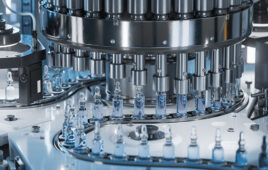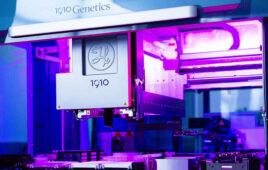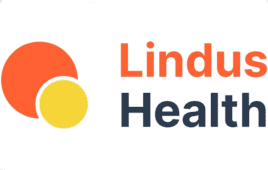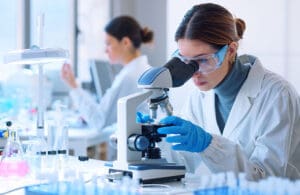
[StockPhotoPro/Adobe Stock]
[For comparison: Explore 19 established and influential biotech hubs around the globe in our feature with an interactive map.]
Spotlight on nine emerging biotech hubs
Below, we highlight the ten emerging biotech hubs below using a scoring system that weighed the presence of influential organizations, recent industry milestones, funding, and the overall industry footprint. Cities are color-coded based on their scores. Scores closer to 80 are shown in green, while scores close to 95 are shown in blue. The size of each city’s marker on the map mirrors its overall score, with higher scores displaying larger markers. There were a maximum potential of 100 points.
For instance, when assessing the presence of influential organizations, Phoenix was awarded 24 out of a possible 25 points thanks to the presence of organizations such as the Mayo Clinic, Creighton University, and the Barrow Neurological Institute. Similarly, Pittsburgh earned 21 out of 25 points in an evaluation of recent industry milestones thanks in part to the establishment of the BioForge facility in Hazelwood Green, which specializes in advanced cell and gene therapies.
When considering the scores, keep in mind that the scores are based on a scoring system that evaluates the biotech potential of each city. For context, on the same scale, the biotech hubs of Boston/Cambridge, Massachusetts and the San Francisco Bay Area would have a scores in the mid- to high 90s. The scores are not equivalent to academic grades and the scores were not graded on a curve.
1. Baltimore, Maryland (Score: 76): Tech meets biotech
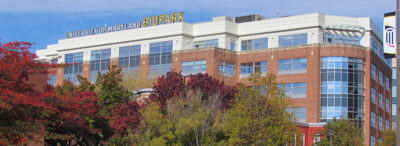
University of Maryland BioPark
Baltimore is working to establish itself as a significant player in the tech and biotech industries with an initiative supported by the Greater Baltimore Committee (GBC), along with a consortium of 38 members. The city’s strong industry footprint, anchored by institutions like Johns Hopkins University and the University of Maryland, further enhanced its score. The city had significant milestones and the relative weight of its influential organizations and funding climate kept it at near the top of the pack.
Key players: This diverse initiative behind the tech and biotech mix includes businesses, universities, and local governments. Prominent universities include Morgan State University, Coppin State University, Johns Hopkins University, and the University of Maryland. These institutions, especially the University of Maryland with its BioPark, are focused on biomedical and life science research.
Recent milestones: The GBC and the consortium convened at Morgan State University to discuss their vision and strategy for utilizing the potential funds. Their application’s focal point emphasizes the convergence of AI and biotechnology.
Funding: Baltimore seeks a significant portion of the $10 billion federal program aiming to foster the tech industry in 20 select regions. If successful, this funding will catalyze innovation, supporting the growth and retention of tech companies in the Baltimore area.
Industry footprint: Baltimore is emerging as a major hub of biotechnology innovation, centered around the University of Maryland’s BioPark research park. By 2030, GBC projects an economic impact of $4.2 billion, along with the creation of 52,000 jobs. The state also has a strong presence in its cell and gene therapy and biomanufacturing sectors. Maryland organizations were involved in COVID-19 vaccine development and manufacturing efforts.
2. Louisville, Kentucky (Score: 75): Aspiring for biotech prominence

Louisville, Kentucky skyline [Image courtesy: Wikimedia Commons]
Key players: Louisville’s biotech sector has a mix of startups and industry heavyweights. Johnson & Johnson, Genentech, and Amgen have facilities in the area. Firms like CreoSalus, Biosynth, and Pharmaron are examples of smaller firms in the area. Bio Pharma Logistics serves the sector with logistics expertise, and the University of Louisville’s UL-BIOMED-PREP program stands as a testament to the city’s academic contributions, grooming the next generation of biomedical science talent. Additionally, Redwire, though based in nearby Greenville, Indiana, is another example of the area’s advanced technology reach.
Recent milestones: In 2023, the Health Enterprises Network heralded the city’s potential at the BIO International 2023 event in Boston, emphasizing its growing influence in the biotech sector. The city continues to see positive shifts in its landscape. For instance, Sierra Space and Redwire are partnering, aiming to further commercial pharmaceutical and biotech research in low-Earth orbit (LEO). Their collaboration promises to bring advanced biopharma and manufacturing facilities to Sierra Space’s Large Integrated Flexible Environment (LIFE) habitat platform. The news, however, has not all been positive. Talaris Therapeutics, once a prominent player in the city’s biotech scene, recently announced layoffs and facility closures. The company ultimately announced a merger with Tourmaline Bio, with the combined entity operating under the name Tourmaline Bio.
Funding: The Louisville Metro Government and the University of Louisville’s Office of Research and Innovation offer financial support to biotech startups and research initiatives. The University of Louisville’s NIH-funded UL-BIOMED-PREP program provides research assistance for future Ph.D. candidates.
Industry footprint: Greater Louisville’s biotech industry includes a mix of established global entities like Amgen and Johnson & Johnson and startups. The city’s biotech footprint encompasses therapeutics, diagnostics, and advanced research platforms. The presence of academic institutions such as the University of Louisville further underscores its position.
3. Ottawa, Ontario (Score: 72): Canada’s Emerging Biotech Capital
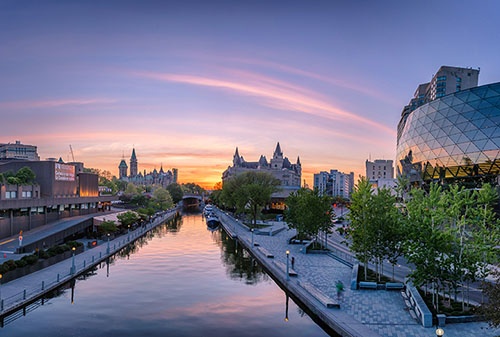
[ Aqnus/Adobe Stock]
Education & Research: The University of Ottawa offers a comprehensive biotech degree program. Graduates from the program are equipped with both a BSc in biochemistry and a BASc in chemical cngineering. This program’s presence further bolsters the city’s biotech credentials, ensuring a continual supply of skilled professionals for the industry.
Key players: Molecular testing form Spartan Bioscience is a notable player in Ottawa’s biotech landscape. Other notable firms located in the city include Genomadix, PanTHERA CryoSolutions. Also active in Ottawa are life science giants such as Thermo Fisher Scientific, IQVIA, J&J, Bayer, Pfizer, GSK, Merck, Novartis, and Roche. Further rounding out the city’s life sciences ecosystem are Turnstone Biologics, SHOEBOX, Virica Biotech and Spiderwort. Virica is focusing on bioprocess facilities and Spiderwort has secured a spot in the MaRS Discovery District’s health-tech accelerator.
Recent milestones: The Canadian government’s CAD$2.1 billion investment in 36 projects speaks to Ottawa’s commitment to strengthen its biomanufacturing and life science sectors. The city’s biotech community consistently breaks new ground with new projects such as Turnstone Biologics’ trailblazing therapies.
Funding: In 2021 alone, the national government infused $2.2 billion into the life sciences and bio-manufacturing spheres, highlighting the industry’s national importance. This move has caught the attention of venture capital firms, signaling a bright trajectory for Ottawa’s biotech sector.
Industry footprint: In addition to the organizations mentioned above, the city is also home to the Ottawa Health Innovation Hub, which aims to enable a strong life sciences ecosystem. Anchors of the hub include the University of Ottawa’s new Advanced Medical Research Centre (AMRC), a 300,000 sq ft facility that will house hundreds of researchers, incubator companies, and partner organizations. By 2031, the Ottawa Health Innovation Hub expects to contribute CAD$1B to Canada’s GDP and support 9,700 jobs.
3. Madison, Wisconsin (Score: 64): Biotech endeavors in the heartland
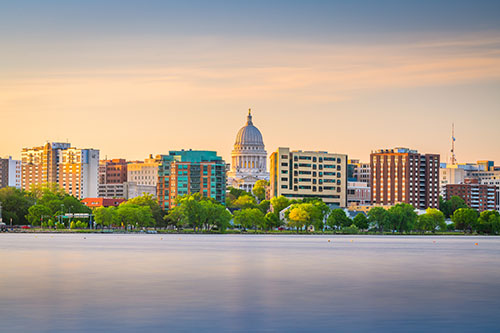
[SeanPavonePhoto/Adobe Stock]
Key players: The consortium boasts a mix of educational institutions and businesses. The University of Wisconsin-Madison stands out as a central player. Other members include Milwaukee Area Technical College, GE HealthCare, Rockwell Automation, Madison Area Technical College, and the Madison Regional Economic Partnership.
Recent milestones: The consortium’s announcement on August 30 highlighted their intent to use funding from the 2022 CHIPS and Science Act to drive advances in biotech and personalized medicine. The specific aim is to focus on using genetic profiles to enhance the medical treatment, diagnosis, and prevention of diseases. The support from key political figures, such as Senator Tammy Baldwin, further underscores the state’s commitment to this endeavor.
Funding: If the Wisconsin Biotech Hub’s bid is successful, the state could receive between $50 million to $75 million of funding from the 2022 CHIPS and Science Act.
Industry footprint: Madison is the only metro region with fewer than two million people among the top 25 metro regions in the U.S. in terms of life science employment, according to the University of Wisconsin in Madison. The financial support for the Wisconsin Biotech Hub would not only solidify Wisconsin’s position in the biotech industry but also support its economy with new jobs and opportunities. With the backing of Governor Tony Evers, the state could further strengthen its involvement in biotech and personalized medicine.
4. Columbus, Ohio (Score: 62): Another Midwestern biotech hub

[SeanPavonePhoto/Adobe Stock]
Key players: Columbus’s biotech renaissance benefits from large entities such as Cardinal Health and Battelle, which is the world’s largest contract research organization. Moreover, the recent expansion of Ultimate Solutions USA into the region reinforces the city’s attractiveness in life sciences.
Recent milestones: In 2022, Columbus received $306 million in NIH funding. In addition, the city’s academic institutions granted more than 8,700 degrees in biology, biomedical science, chemistry, and pharmacy over the past five years.
Funding: The infusion of venture capital, exemplified by Batelle’s $80 million investment in 50,000 square feet of wet lab space in the area, highlights that the city’s aspirations.
Industry footprint: The city is home to a number of life science players. In addition to Cardinal Health and Batelle, there are noteworth companies like American Regent, an injectable manufacturer with sales exceeding $1 billion. Also present is AmplifyBio, a gene therapy specialist with more than $200 million in raised capital. Another company in the city is Andelyn Biosciences, which specializes in developing gene therapies for rare genetic anomalies.
5. Phoenix, Arizona (Score: 60): A leader in medical research

[Kevin Ruck/Adobe Stock]
Key players: Mayo Clinic, Creighton University, Barrow Neurological Institute, and various bioscience, healthcare, and education organizations.
Recent milestones: Expansion of notable institutions: Barrow Neurological Institute and St. Joseph’s Hospital. Launch of innovative research on neuroscience robotics and brain-computer interfaces. Mayo Clinic’s Discovery Oasis zoning application underway.
Funding: The Phoenix Medical Quarter has secured more than $2 million in Senate appropriations, with $1.4 million channeled to Creighton’s medical VR training.
Industry footprint: In 2021, Arizona’s emerging bioscience sector employed more than 36,000 professionals.
6. Brooklyn, New York (Score: 57): Biotech aspirations at the Navy Yard
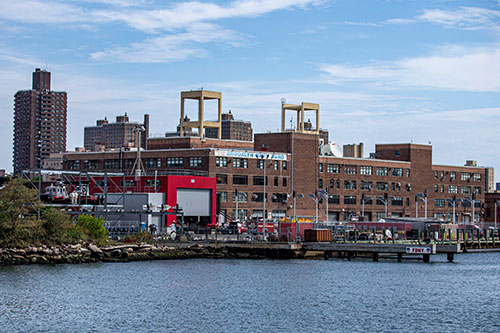
[GORDON/Adobe Stock]
Key players: Newlab, Algiknit, Tômtex, Brooklyn Navy Yard Development Corporation, Empire State Development, and the Partnership Fund for New York City.
Recent milestones: The pending announcement of a 50,000-square-foot biotech incubator at the Brooklyn Navy Yard, which will provide office space, research labs, and programming areas for startups and established companies.
Funding: A $20 million city investment, which is part of the $1 billion commitment to the LifeSci NYC initiative launched in 2021.
Industry footprint: The LifeSci NYC initiative aims to create 40,000 new jobs in the next 15 years.
7. Indianapolis, Indiana (Score: 56): From racetracks to research labs
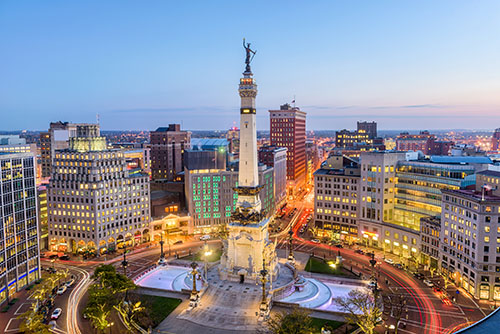
[SeanPavonePhoto/Adobe Stock]
Key players: BioCrossroads stands out as a significant player supporting Indiana’s life sciences industry. The Indiana Biosciences Research Institute (IBRI) also plays a role in supporting the Indianapolis biotech sector, serving as a prominent translational research institute. In addition to Eli Lilly, the 16 Tech innovation district supports collaboration across biotech and tech organizations.
Recent milestones: According to BioSpace, Indiana University and Purdue University were the two largest beneficiaries of NIH funding last year. In 2022, the city had 2,930 professionals actively involved in life sciences research. The city is home to a high concentration of experts in areas such as bioengineering, biomedical engineering, epidemiology, chemistry, and data science.
Funding: In 2022, Indiana saw more than $6.8 billion of investment in its life sciences sector. Of that amount, some $600 million was venture capital funding. Also last year, the city received $240 million in NIH funding.
Industry footprint: Indianapolis boasts a dynamic mix of research entities, startups, and established pharmaceutical companies. The city’s growth strategy, characterized by collaboration between academia, industry, and investment bodies, is setting a robust foundation for its biotech future.
8. Pittsburgh, Pennsylvania (Score: 55): Aspiring biotech hub

[jonbilous/Adobe Stock]
Key players: University of Pittsburgh, Carnegie Mellon University, InnovatePGH, various tech and biotech organizations.
Recent milestones: The University of Pittsburgh has formed a consortium focusing on the region’s biomanufacturing contributions. Investments include the BioForge facility in Hazelwood Green. BioForge is a biomanufacturing center specializing in cutting-edge cell and gene therapies.
Funding: Awaiting potential funding from the CHIPS and Science Act, with the possibility of between $50 million and $75 million for strategy implementation if selected in Phase 2. The Act, which became law in 2022, seeks to re-establish the U.S. as a global leader in technological innovation.
Industry footprint: Pittsburgh has a long manufacturing history. The city’s life sciences sector has received $714 million in NIH research funding, with more than 1,000 principal investigators. The area is home to 56 active venture and angel-funded firms with nearly $1 billion invested.
9. Bloomington, Indiana (Score: 51): Biotech’s heartland haven
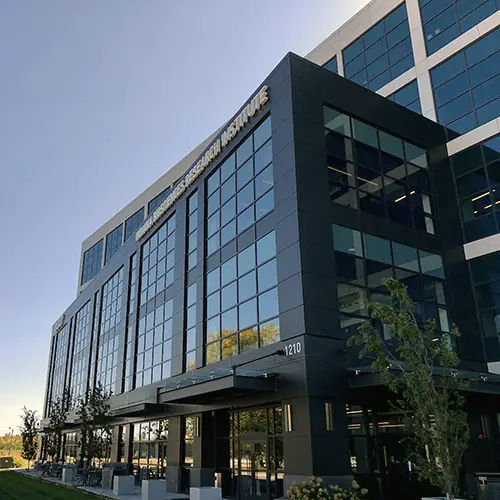
Applied Research Institute building
Indiana, traditionally known for its sports and agriculture, is branching out into biotech. With Bloomington at its core, a consortium of Hoosier stakeholders, including Applied Research Institute (ARI), is leading efforts to secure a designation as a Regional Technology and Innovation Hub. While the city’s ambitious initiatives and milestones helped its score, the relatively limited influence of its organizational footprint tempered its overall ranking.
Key players: The Heartland BioWorks consortium includes representatives from the private, public, nonprofit sectors, and academia. Notable figures include Indiana Secretary of Commerce David Rosenberg and former Mayor of Bloomington, John Fernandez, who will serve as the BioWorks Regional Innovation Officer.
Recent milestones: The consortium has recently submitted their proposal to the U.S. Economic Development Administration to win formal designation as a tech hub. The consortium aims to cement Indiana’s status as a leader in the biotech supply chain.
Funding: If the Heartland BioWorks consortium succeed in their bid, the organization stand to compete for an implementation grant potentially reaching up to $75 million, as part of the CHIPS and Science Act of 2022’s Regional Tech Hubs Program.
Industry footprint: Indiana currently leads the nation in pharma exports. The vision for the Heartland BioWorks initiative is to sharpen the state’s biotech focus with a variety of endeavors, including workforce training in biotechnology and facilitating biotech startups in product launches. The organization also seeks to establish an advanced manufacturing network for biotech enterprises.
Filed Under: Biologics, Cell & gene therapy, Genomics/Proteomics, Industry 4.0
